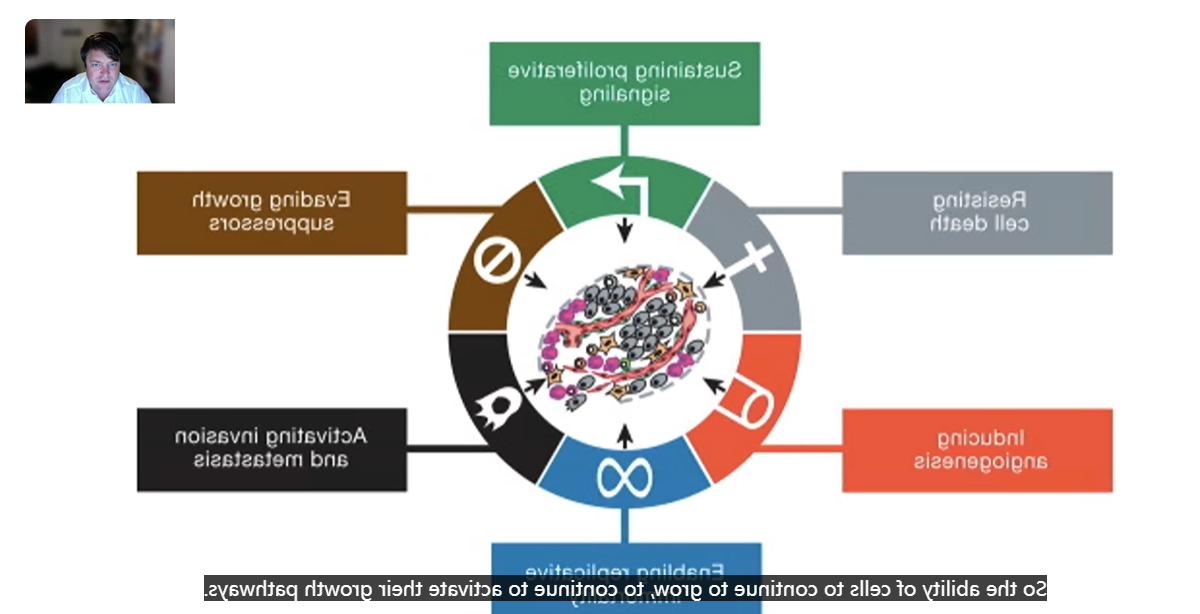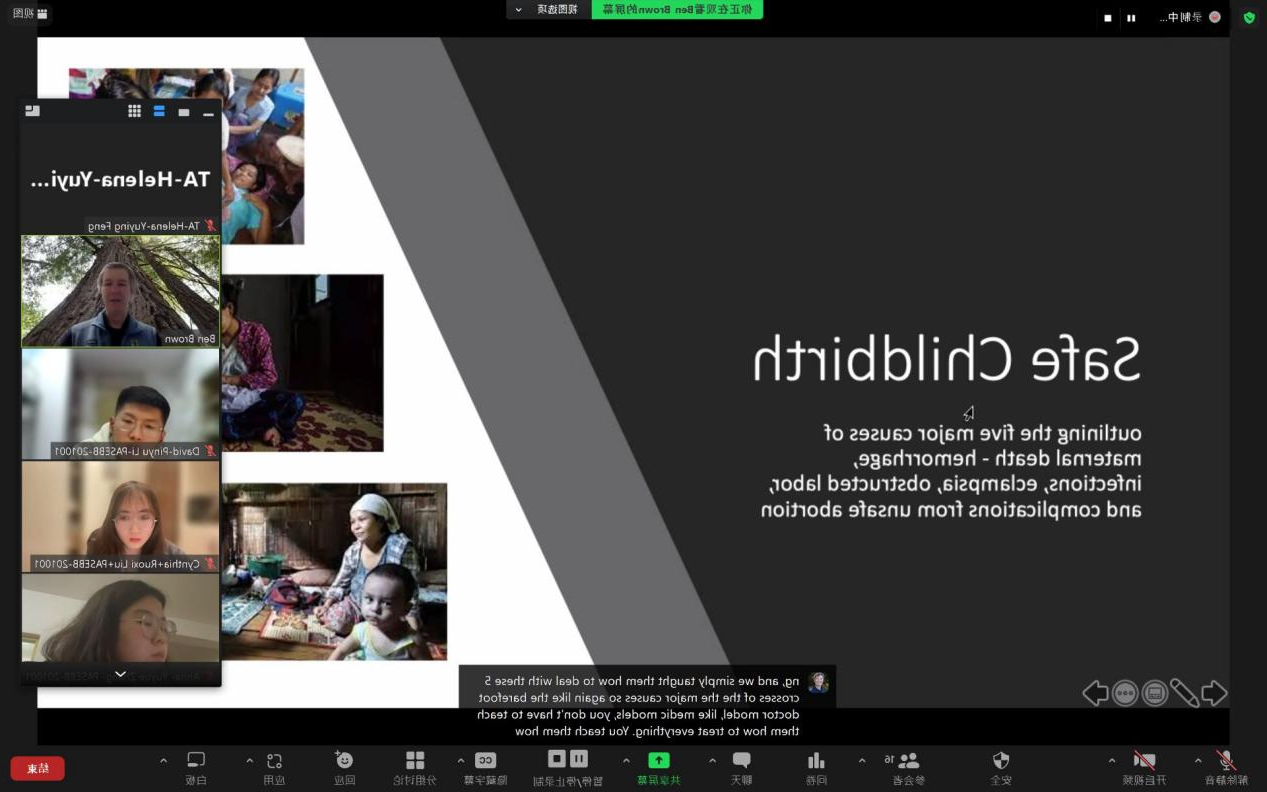为了创造更灵活的课堂参与模式以及与国外知名教授进行学术交流的机会,2023年寒假,我处继续引进哈佛大学、剑桥大学、新加坡国立大学等海外名校教授在线学习和研究项目。活动以学习为出发点,以交流为目的,在课程实时直播过程中,全程提供字幕转换,方便同学们学习,同时着重培养学生的口语表达能力提高学习的课堂参与度。这场打破时空限制的交流会,不仅满足了同学们对知识的渴望,也最大限度地丰富实践交流体验。这是一次知识的传递,也是一场交流盛宴,更是一次拥有许多额外收获的人生旅程。让我们一起来看看大家难忘的线上交流经历吧!
心得1
剑桥大学《体育博彩论坛官网》学习心得
(2022级五年制临床医学 陈鸿斌)
首先,很感谢学校能开展此次寒假海外名校课程学习活动,给予我一次和五湖四海的大学生们一起参加剑桥大学《体育博彩论坛官网》学习的机会。怀着对医学的热情和向往,我顺利完成了这门课程的学习,并从中获益颇丰。
在教授过程中,菲奥娜库克博士和查尔贝尔博士向我们介绍了传染病和慢性疾病于目前世界范围内的趋势和结果,并提出问题来激发我们进一步思考如何应对挑战,使我们思维发散,积极思考。菲奥娜库克博士和查尔贝尔博士也很关照我们,每当他们讲完一个知识点便会停下来询问我们是否有哪里不懂,对我们所提出的疑惑也给予了热情的解答,指导我们如何更好地完成作业。在不同小组的演讲报告上,我们认真倾听,敢于提出问题,学术氛围浓厚。同时该课程涵盖不同疾病的临床和科学方面,以及诊断、治疗、感染控制、疫苗接种和相关公共卫生措施的内容,使我对医学有了更多的认识。
此次的课程学习不仅拓宽了我的认识层面,还激发了我对医学学习研究的热情。比如传染病中流行病学研究中,对地方病、流行病和大流行病等不同角度看待,我们要有不同的考虑因素,用不一样的眼光看待问题;点源爆发、连续爆发和传播爆发,不同的疾病爆发类型在哪一时间点易控,应如何组织应对;针对癌症的“特征”,可以构建出不同的治疗方法,然后在世界范围内的提供情况下,检验它们的有效性、可行性,以及在不同情况下应该提供哪些疗法的决策方式。
同时,在老师的鼓励和伙伴的帮助下,我第一次用全英文口语向老师和同学们进行演讲。我们被分为8个小组并且自由选择一个主题与大家交流学习。我所在的小组选择了伯基特淋巴癌为主题,小组之内我们积极查找相关文献,主动分享自己的想法,有各自明确的分工,互相督促,最后成功完成作业。在这过程中,我了解到pubmed这一外网医学网站和一些制作思维导图的软件。全英文的教学也使我掌握了一点医学英语,虽然我不能立即明白,只能在课后查翻译,但这无疑又是丰富的收获。
最后,再次感谢学校能开展此次活动使我有机会参与到这堂课程;感谢老师的淳淳教诲使我对医学领域有更多的了解;感谢同学们的陪伴,并且很幸运能和他们结交成为伙伴。这次的学习经历对我来说一定是难忘的。

心得2
Reflections of lessons learned from the course of
Human Endocrine Physiology at Harvard University
(2022级五年制临床医学 陈若滢)
At the end of the winter vacation, the course Human Endocrinology and Physiology sponsored by Harvard University in the United States was completed. During the course, the professor used humorous and incisive words to let us understand that medicine is not only a natural science, but also a comprehensive discipline combining social science and humanistic medicine. It is to use nursing technology and humanistic care spirit to care for people, take care of people, heal people's damaged or missing physical functions, and comfort people's body and soul damaged by illness. As we are about to become high-quality doctors in the new century, we not only need to have superb skills and techniques, but what can more reflect our value is to have a loving heart, to face up to the suffering of the world, to cure and redeem people suffering from diseases and injuries. Therefore, it has a profound meaning to accept the baptism and enlightenment of medical humanities today.
Medical college students also have a subtle influence. Therefore, medical colleges and universities should pay more attention to the education of medical students' humanistic quality in their ordinary teaching, and inherit good medical humanistic quality and noble medical ethics. As a future medical worker, we are not only required to possess superb technology, but also to maintain a loving heart. In the face of the suffering of the world, we must face it squarely, cure it, and help those suffering from illness. Maybe we can't bring the dead back to life, maybe we can't bring the dead back to life, but we can maintain a kind heart of caring for and caring for the patients. Only with such a kind heart can we show our benevolence. Therefore, it is very meaningful for us to accept the baptism of medical humanities. The current medical humanities education is to lay the foundation for our future benevolence.
I love the medical cause and am determined to devote myself to it. I am determined to make every effort to eliminate the pain of human beings, help the perfection of health, maintain the sanctity and honor of medical technology, save the dead and heal the wounded, and work tirelessly for the development of the medical and health cause of the motherland and human physical and mental health. I am very interested in immunology, so I joined this class.
In the teacher's teaching, there is not only the sorting of subject knowledge, but also the discussion of special cases. It is no longer limited to the acquisition of theoretical knowledge, but also the combination of theory and practice, which greatly improves the richness and interest of the course. I have recognized a variety of cases and greatly broadened my horizons. At the same time, the teaching assistant is conscientious and responsible, has a patient and rigorous working attitude, and arranges each course in detail and properly. In every reporting link, we have put forward effective suggestions.
We firmly believe that as long as we abide by the vows of Higaladis, understand it, protect it, and always remind ourselves that we are a doctor and a great doctor with flesh and blood. For patients, whether they are rich or poor, high or low status, old or young, beautiful or ugly, close relatives and friends, smart or stupid, we should take care of them as we treat our relatives. We should always put the interests of patients first, be a doctor who helps the world and loves the people, become a doctor who is welcomed and respected by the people, and become a person with noble medical ethics and perfect personality. Finally, become a great doctor!
Although there are some small problems in the closing report at the end of this training, during the final speech, the network error caused me to be unable to finish the speech perfectly, but this also accumulated valuable experience and lessons for my future study and competition, so I should make a good prediction and remedy in advance. At the same time, it inspires me to make continuous progress, constantly break through myself, and achieve a leap in my ability level.
Most importantly, I am very grateful to the school for providing us with such a rare opportunity to learn and exchange on an international platform. Thank you again for the hard work and guidance of the professors and teaching assistants in this training. It's a great honor to participate in this training. At the same time, I hope to know more students from different places in the future courses and have more exchanges in medicine, I also hope to have the opportunity to participate in such activities in the future and listen to the guidance and teachings of the professors again.

心得3
Reflections of lessons learned from the course of
Medical Management Topics at Stanford
(2020级公共事业管理 何铖辉)
At the beginning of this year, I participated in the course “Medical Management Topics: In-depth Analysis and Optimization of the Problems of Lack of Community Medical Resources, Excessive Medical Practices and High Medical Costs” offered by Professor Benjamin of Stanford.
Through this course, I realized more deeply that, with the continuous promotion of medical reform, China’s medical service system has been improved, and the level of medical services has been improved more rapidly. However, along with aging, urbanization, and changes in the disease spectrum, the basic health needs of residents in the process of social and economic transformation are growing rapidly and showing diversified characteristics, and the structural problems on the supply side of medical care in China are still prominent. In this context, as health service and management professionals, they need to be able to think more systematically to solve the outstanding problems in the healthcare system.
This course explores new ideas in healthcare management and social healthcare construction from the basic concepts of medicine, taking into account factors such as the social environment and mental health, looking at existing social healthcare hotspots with a fresh perspective, and generating corresponding efficient enhancement and optimization measures. In the course, the professor is funny and good at using his own experience to draw out the key points of the course, arousing students' interest in learning and making the boring knowledge interesting. In the professor's lecture, there is both an overview of professional knowledge and a deeper discussion of specific problems, and he uses his own research and thinking to set off a brainstorm for the students. Everyone spoke enthusiastically online, exchanging and discussing, colliding with sparks of wisdom and fully igniting the students' enthusiasm for public health management research. In addition, the associate instructors from Harvard University, Karolinska Institutet and Australian National University were conscientious and responsible, upholding a rigorous and down-to-earth working attitude, answering my questions and providing us with a lot of professional literature in related fields, as well as giving me a lot of advice on health field expertise during the course. I am very grateful to them, without their help, I might not have been able to complete the course well.
At the end of the course, I will submit a project report to present my results. The report submitted by our group is a study on the management of chronic diseases. Through my interaction with the professor, I was able to gain a better understanding of the state of healthcare, and chronic disease management models in China, and even around the world. For example, the Chronic Disease Management Model (CCM) in the United States, the Chronic Disease Self-Management Program Model (CDSMP) in Finland, and the Innovative Care for Chronic Conditions Framework (ICCC) in developing countries. All of these have given me a broader perspective. It has benefited me as a health management undergraduate student to be more determined in my future direction of study.


